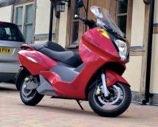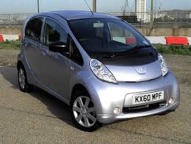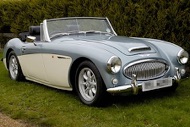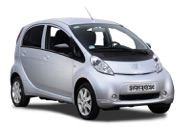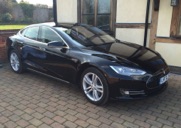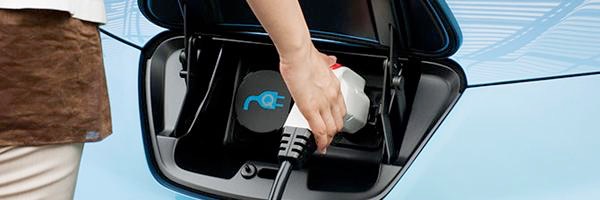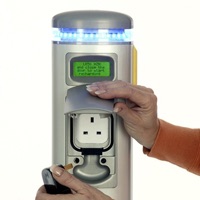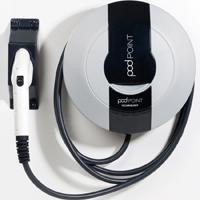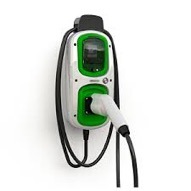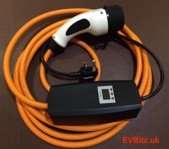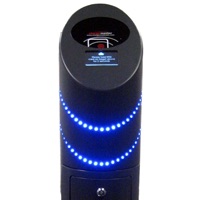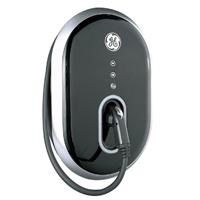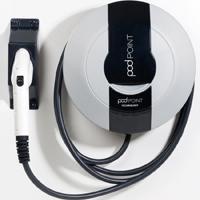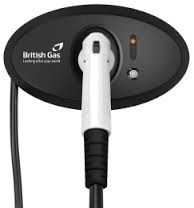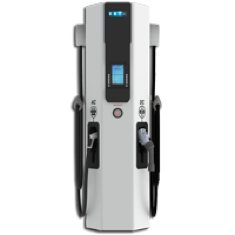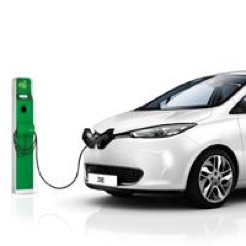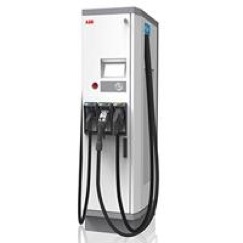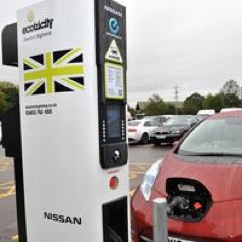Charging points are primarily defined by the power (in kW) they can produce and therefore what ‘speed’ they are capable of charging an EV.
There are three main EV charging speeds: Slow charging (up to 3kW) which is best suited for 6-8 hours overnight Fast charging (7-22kW) which can fully recharge some models in 3-4 hours; and Rapid charging units (43-50kW) which are able to provide an 80% charge in around 30 minutes. Rapid chargers also come in two charge point types – AC and DC – depending on whether they use alternating current or direct current.
See below for a detailed description of the four main charge point types (Slow, Fast, Rapid AC and Rapid DC) with images of example units and the symbols that is used on Zap-Map Live.
SLOW CHARGE POINTS (UP TO 3KW)
S L
18 APRIL 2016
Slow charging is the most common method of charging electric vehicles. In most cases a standard single-phase 13 Amp three-pin plug is used to draw up to 3kW of power – with a full charge typically taking 6 to 8 hours. While the first wave of publicly accessible on-street charge points were of this type, these are now being replaced by Fast and Rapid units.
Nearly all electric models can be slow charged with each vehicles being supplied with a charging cable with the appropriate connectors and cable – in most cases a standard 3-pin plug at the charging point outlet, and either a gun shaped Type 1 (J1772) or 7-pin Type 2 (Mennekes) connector for coupling with the vehicle inlet – see Know Your Connectors below.
Home or workplace overnight charging is the most common type of charging cycle. Although a standard single-phase 13 amp three-pin domestic socket is adequate for home charging, a dedicated EV unit should be installed. Alternatively, a qualified electrician should conduct a house survey to ensure that the wiring will safety support the relatively long periods of charging.
Slow charging summary:
-
•Slow chargers are typically rated at 3kW (1-phase, 13/16A)
-
•Most units have a standard 3-pin (BS 1363) or Commando (IEC 60309) supply-side socket – alternatively units provide a tethered cable with a non-removable Type 1 (J1772) vehicle connector
-
•Charging an EV on a slow charger usually takes 6-8 hours (depending on battery capacity)
FAST CHARGE-POINTS (7-22KW)
Fast charging reduces EV charge times to around half that of a slow charge by doubling the available current to 32 amps (7kW) – the time for a full charge typically taking 3 to 4 hours. Most commercial and a many public on-street chargers already use this technology. It is likely that this charge rate will become increasingly used to replace public Slow charging points across the UK.
While less common, Fast 3-phase charging is also technically possible, each phase delivering approximately 7kW to deliver a total of 22kW. However, this is mainly reserved for electric trucks and buses which need high power chargers to replenish their large battery packs.
While not all electric cars and vans are able to accept a 1-phase Fast charge at 32 amps (7kW), most can be connected to them (with the right connector) and will draw either 13 or 32 amps depending on their capability. While Type 1 (J1772) connectors were initially the most common type used at the charger end, these are steadily being replaced by the more versatile Type 2 (Mennekes) connector – see Know Your Connectors below.
Fast charging summary:
-
•Fast chargers are typically rated at 7-22kW (1- or 3-phase, 32A)
-
•Most units have a Type 2 (Mennekes, IEC 62196) or Commando (IEC 60309) supply-side socket – occasionally, units provide a tethered cable with a non-removable Type 1 (J1772) or Type 2 (Mennekes) vehicle connector
-
•Charging an EV on a fast charger usually takes 3-4 hours (depending on battery capacity)
RAPID AC CHARGE-POINTS (usually 43KW max on 3 phases)
602
RAPID AC POINTS
18 APRIL 2016
Rapid AC chargers provide a high power alternating current (AC) supply with power ratings up to 43kW. At this level of power, an electric vehicle can typically be charged to 80% in less than half an hour.
The Rapid AC option is a relatively new development and only available on one or two EV models in the UK – more common is the Rapid DC option described below. Due to their high power, Rapid AC units are equipped with a tethered cable with a non-removable Type 2 (Mennekes) connector – see Know Your Connectors below.
Rapid AC charging summary:
-
•Rapid AC chargers are typically rated at 43kW (3-phase, 63A)
-
•All units provide a tethered cable with a non-removable Type 2 (Mennekes) vehicle connector
-
•Charging an EV on a rapid AC charger usually takes 30-60 minutes for an 80% charge (depending on battery capacity)
RAPID DC CHARGERS (50KW+)
1409
RAPID DC POINTS
18 APRIL 2016
Rapid DC chargers provide a high power direct current (DC) supply with power ratings of up to 50kW. At these charging rates, charging an electric vehicle to 80% typically takes half an hour.
The most common type of Rapid charging unit, Rapid DC chargers are equipped with a tethered cable with a non-removable connector which is coupled with an appropriate inlet socket which is fitted to some but certainly not all EV models. Rapid DC chargers are fitted with either a JEVS (CHAdeMO) or a 9-pin CCS (Combo) connector – see Know Your Connectors below.
Rapid DC charging summary:
-
•Rapid DC chargers are typically rated at 50kW (125A)
-
•All units provide a tethered cable with a non-removable JEVS (CHAdeMO) or CCS (Combo) vehicle connector
-
•Charging an EV on a rapid DC charger usually takes approx. 30 minutes for an 80% charge (depending on battery capacity)
KNOW YOUR CONNECTORS
Connecting an electric vehicle to an EV charger requires a cable fitted with connectors to match the charger outlet socket and the vehicle inlet socket. Most cables have a connector at each end (to couple with the charger outlet and vehicle inlet) or are tethered, which means that the cable is permanently attached to the charging unit.
The choice of connector is determined by whether an EV is charged using AC (alternating current) or DC (direct current), the charging speed (kW power) and the safety protocol employed. Having different countries of origin, the make and model will also determine which connector are used.
AC connectors (and standards) include: the UK 3-pin (BS 1363), industrial Commando (IEC 60309), American Type 1 (SAE J1772), and European Type 2 (Mennekes, IEC 62196). DC connectors include: the Japanese JEVS (CHAdeMO), the European Combined Charging System (CCS or ‘Combo’), and the proprietary Tesla supercharger connector.
The following table shows icons and images of the main connector types, together with the range of power ratings that each type is able to support. To find out what connectors are used by a particular EV model, use Zap-Map’s Connector Selector.

